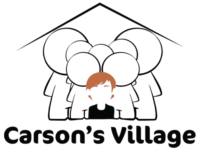BLAME
What should not be said: “Did your [loved one] not wear a mask [follow the rules] like he/she was supposed to?”
Why not to say it: There is no need to cast blame on the person that passed. This only upsets the family members who are mourning the loss of a loved one and trying to find closure and grieve well. This statement has the potential to distract from this healing process.
Instead: Focus on the present situation and what can be done to help the family through the process. Do whatever you can to take the pressure and blame off them and allow them to heal faster
What should not be said: “This is not your [loved one]’s fault. I heard that [conspiracy theory] is what caused all of this.”
Why not to say it: The reason that COVID-19 exists does not change the fact of the passing. Giving the family something to blame is not healthy and it only delays the healing process.
Instead: Focus on the here and now. It is important to handle the tasks at hand and to not be distracting.
What should not be said: “I guess this was bound to happen because of their [vulnerability].”
Why not to say it: Blaming the person that passed will only upset the family. This is a very pessimistic and accusatory attitude that will not help the family move forward.
Instead: Focus on the family and help them get through the funeral process.
COMPARISON
What should not be said: “You are lucky that the funeral home will allow 10 people at the funeral; I heard that a family in another city was only allowed one witness.”
Why not to say it: Things going on in other locations do not make this situation better or worse. It only distracts and could cause jealousy or envy if another family has a better situation than they have for their loved one.
Instead: Be positive and try to help them manage the situation that they are in to maximize their ability to mourn the loss.
What should not be said: “With so many people dying from COVID-19, at least you are not alone.”
Why not to say it: It does not matter how many people have passed to the family who loses someone to COVID-19. They only know their loss and telling them that they are ‘part of the crowd’ does not solve anything.
Instead: Focus on the family and helping them get through the funeral process.
FEAR
What should not be said: “Do you have COVID-19 from being around your [loved one]?”
Why not to say it: That is a very accusatory and inflammatory thing to say. It takes the focus off the loved one and the tragedy in a very negative way. It can also add fear and anxiety to the grieving individual, which is not what they need right now.
Instead: Offer instead to do what you can to ensure that the family is safe and help them get tested if necessary.
What should not be said: “Will I get COVID-19 if I go to your [loved one]’s funeral/viewing?”
Why not to say it: This just injects doubt and fear into the process. Anyone going to any location outside of their own home should take all precautions possible for their safety, no matter where they are going.
Instead: Offer to provide personal protective equipment to anyone attending to alleviate any fears of infection.
LACK OF CLOSURE
What should not be said: “Don’t worry about the funeral. You can always have a celebration of life later on.”
Why not to say it: The funeral offers the family an opportunity for closure. While the celebration of life can do the same thing, the delay can cause additional mental stress and anguish.
Instead: Try and find a way to get as much closure as possible. They could have the visitation in 30-minute shifts of 10 people each or do a video conference to let everyone get together and tell stories about the loved one.
